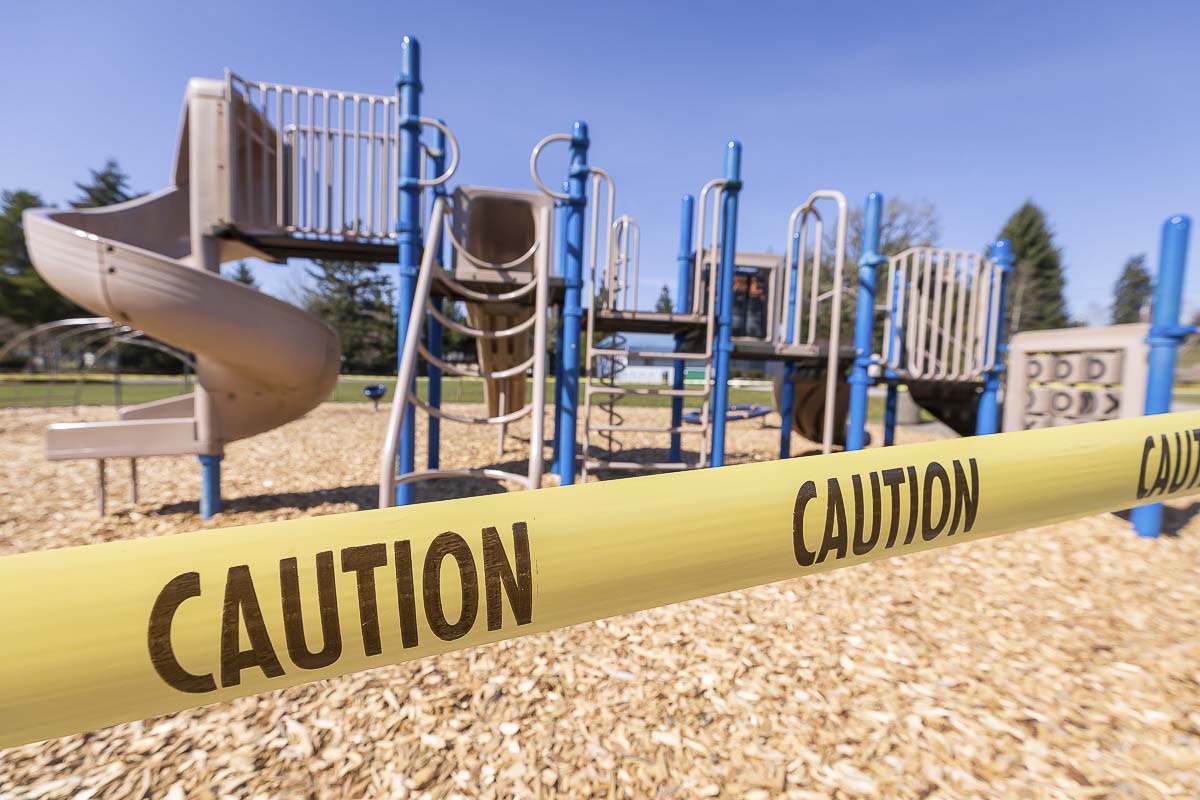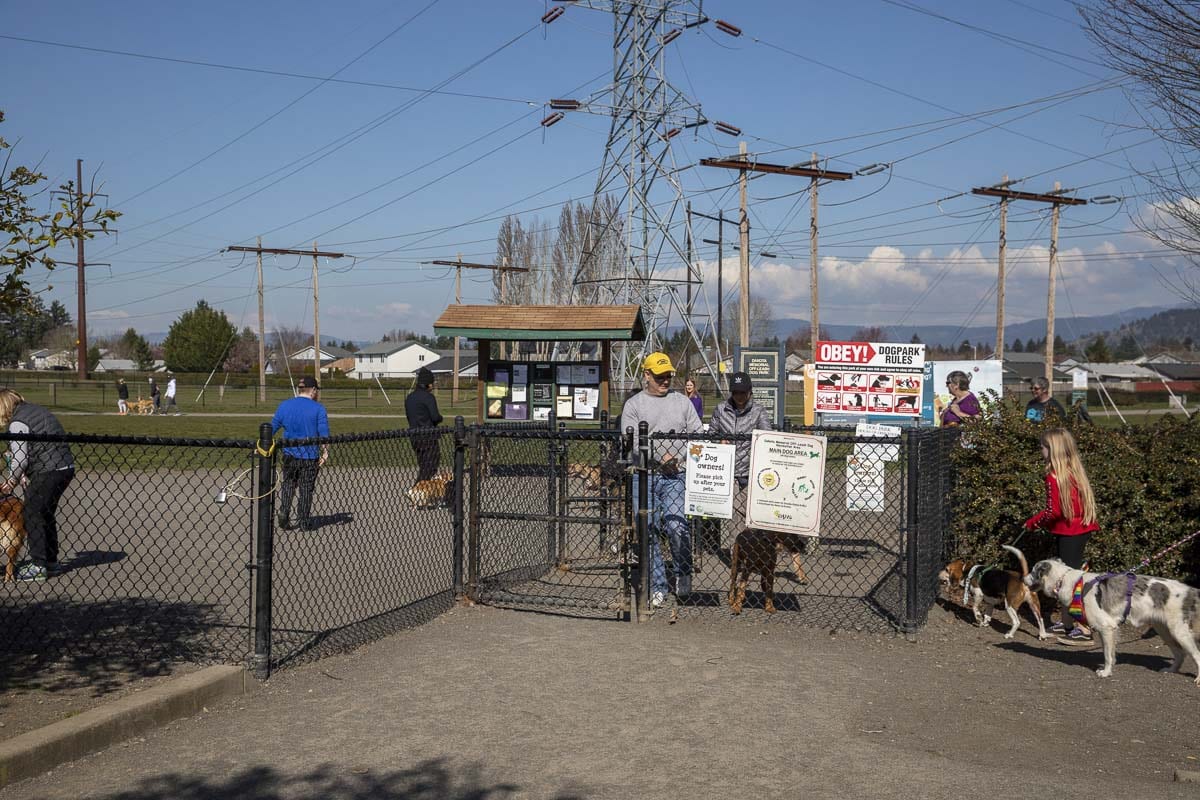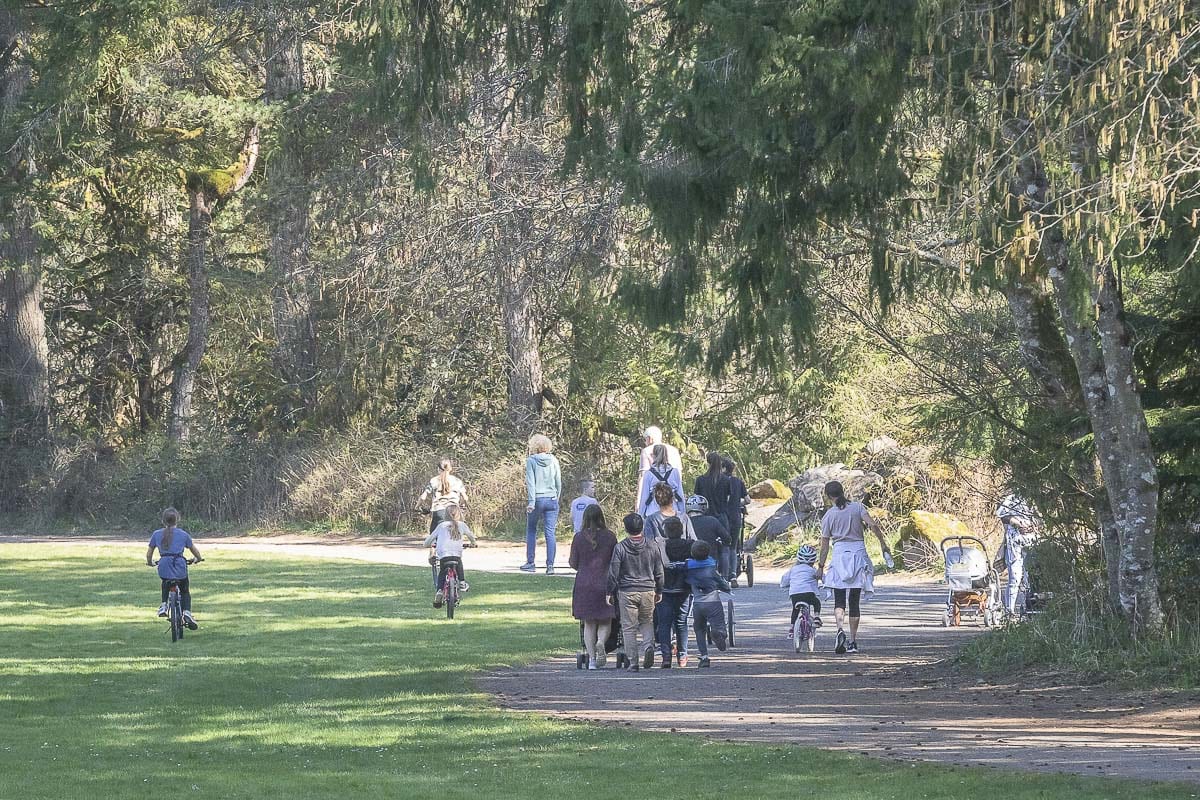New agreements and old advice pertain to use of parks during COVID-19
VANCOUVER — With sunny weather arriving in Clark County, and temperatures in the 60s, many people ventured outside to various parks and public outdoor spaces. The question some are asking is, should they?

With the novel coronavirus, or COVID-19, outbreak well into its fourth week in the mainland United States, many local and state governments have enacted social distancing measures and restrictions on restaurants and public gatherings of anywhere from 10 to 50.
While there are no restrictions in place yet in county, city or state parks in Washington, the state of Oregon recently closed all of its state parks, and many public health departments are cautioning against prolonged time at public outdoor areas.
“If you go outside to enjoy this beautiful spring weather, remember to practice social distancing,” Clark County Public Health (CCPH) posted today.

CCPH also listed it’s suggested precautionary measures for going to parks and public outdoor spaces during the outbreak.
- Do not congregate in groups at parks. Stay at least 6 feet away from each other.
- Avoid playground equipment. Playground equipment may not be frequently cleaned and sanitized.
- If children do come into contact with playground equipment, such as swings and slides, ensure they do not touch their face with unwashed hands.
- Children should wash their hands with soap and water, or use a hand sanitizer with at least 60 percent alcohol, immediately after coming into contact with playground equipment.
- Stay home when sick.
In addition, Clark County Public Works and the city of Vancouver’s Parks and Recreation Department signed a joint agreement with the National Recreation and Park Association today outlining further guidelines for parks during the mitigation of COVID-19.
“We are so proud to be able to provide a space for members of our community to recreate in a safe way,” said Clark County Parks and Lands Manager Galina Burley, in a release. “While we want people to continue to be able to enjoy their outdoor spaces, we also need to make sure people are following social-distancing guidelines to keep themselves and others safe. We are grateful to the City of Vancouver for their support and partnership in this initiative.”
NRPA recommends the following guidelines for social distancing in public parks and trails:
- Do not use parks or trails if you are exhibiting symptoms
- Follow CDC’s guidance on personal hygiene prior to visiting parks or trails
- Follow CDC guidance on the recommended size of social gatherings including outdoor picnicking, pick-up sports and other group hangouts, and maintain proper physical distance at all times
- Be prepared for limited access to public restrooms or water fountains
- Share the trail and warn other trail users of your presence as you pass
- Observe CDC’s minimum recommended social distancing of six feet from other persons at all times
- If these recommendations are not possible, users should find an alternate location or depart the space
Many parks across the county, including Camas’ Lacamas Park and Pacific Community Park in Vancouver, as well as Lewisville Park in Battle Ground were near full today, with families biking, kayaking and walking dogs.

Parks in Ridgefield and La Center were less popular, with next to no one using the facilities, and a park in La Center was actually taped off, preventing the playground equipment from being used.
“There are no plans to close City of Vancouver public parks at this time,” said Vancouver’s Parks and Recreation Marketing Manager, Melody Burton, in an email. “We encourage people to use their local park to promote physical and mental health but to be especially mindful to practice social distancing. It’s important for people to know that Parks and Recreation cannot guarantee a sanitizing schedule for park and playground facilities at this time so visitors are encouraged to use their best judgment regarding use of equipment and structures.”
CCPH, as well as the CDC, explains that the virus is predominantly spread by droplets usually created when someone sneezes, coughs or touches their nose and then a surface. The virus can live on a surface for several hours after being deposited there, but sunlight and warm weather can shorten that time.
Since the first confirmed case of COVID-19 in the U.S. was found in Washington state last month, Clark County has identified a handful of cases, three of which have resulted in deaths from the virus.
With area schools closed for at least six weeks, many students and their families are venturing outdoors. While COVID-19 is most lethal in populations of people in their 70s, 80s and 90s, new CDC data published yesterday by the New York Times, shows how 40 percent of confirmed COVID-19 cases in the U.S. are actually younger; between 20 and 54.
The report also found that less than 1 percent of hospitalizations were people in the youngest age group of 19-years-old or younger.




